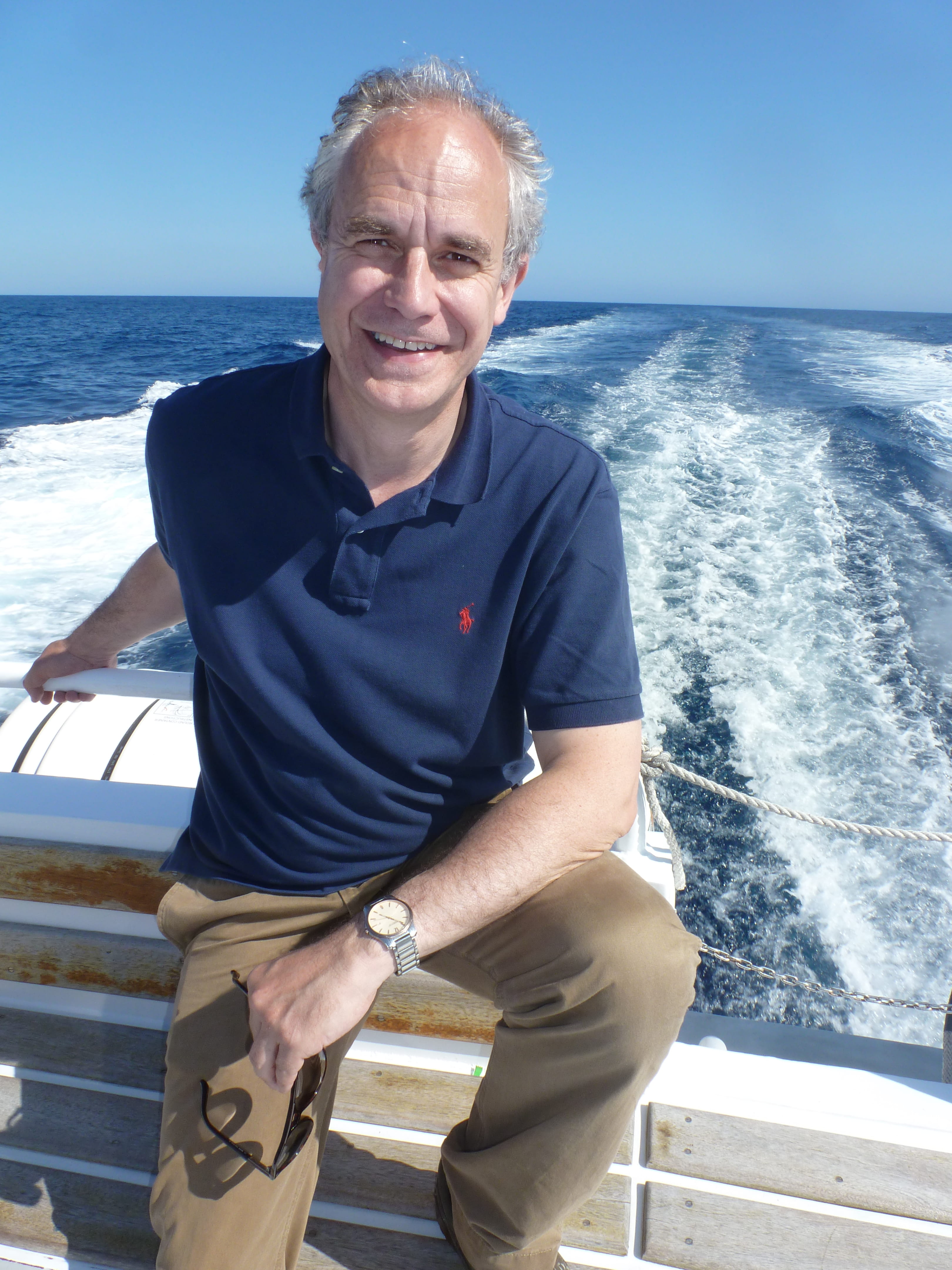The School of Life Sciences was delighted to welcome Charles Clover as the speaker for one of our first School Seminar Series talks of 2023. Charles is an environmental campaigner, journalist, and author. He co-founded Blue Marine Foundation, a charity dedicated to restoring the ocean to health with a vision of a healthy ocean forever, for everyone. Charles discussed his latest book, Rewilding the Sea, giving fascinating insights into the progress in this area over recent years.
A Changed Sea
Through the talk we were taken back to a world of the Essex coastline which seems long lost. A stretch of the Colne and Blackwater estuaries so thick with native oyster beds that the Romans saw this as a rich land to be part of their empire. Many will find it hard to believe that only 100 years ago the now muddy brown North Sea was blue and clear, so much so that fishermen would use the sign of a bucket of cloudy water to tell them herring or mackerel were nearby, mudding the water with their oil and mess. Even as recently as the 1930s there were oyster beds 200 miles long out on the sea floor a hundred miles out from the coast of East Anglia and, only a few centuries before that, a sea alive with grey and right whales, skate, and halibut.
“In the 1830s”, Charles tells us, “Small sailing boats could catch a ton of halibut a day on the Dogger [Bank]. Now the whole North Sea fleet, UK, German and Dutch, lands less than two tons of halibut a year”. Cod has plummeted too, with a decline of 87% of this popular seafood since the 19th century.
With the continued depletion of our waters, we are damaging not only the biodiversity but also our food security.

Rewilding the Sea
But while this can be a bleak outlook on the state and future of our waters Charles sees plenty of space for hope in the future. “The sea is altered but it is also dynamic”, he says, “It will rewild itself, if only we can leave it alone more of the time”.
Throughout his talk and book, he strongly advocates for the potential of nature-based climate solutions. If we leave the cod alone long enough there will be far more of them in the future. If we invest in the sea and allow it to rewild we’ll see the benefits everywhere as more carbon is absorbed from the atmosphere. Recent research suggests fish soak up twice the carbon dioxide emissions of the EU every year, and this is despite current levels of dramatic overfishing.
Native Oysters and projects of hope
Charles calls his new book a journey from despair to hope, one prompted by seeing the progress of various projects enacted by small groups of determined people, including fishermen, researchers, and the public.
Amongst other projects, including the protection of Dogger Bank in the North Sea and the creation of the Blue Belt, Charles highlights the work to revive the native oyster populations in Essex. The Essex Native Oyster Restoration Initiative (ENROI), which includes partners from Blue Marine Foundation and the University of Essex, has seen 900m2 of clutch (stone and shell which creates a habitat for oysters) dropped in the Blackwater.
Charles calls these species “a home-giving, pollution busting, carbon guzzling ecosystem engineer”, with the restoration of oysters in waters in Essex and other areas of the country having significant benefits on the rest of the marine environment, including supporting some 466 species associated with oyster beds, such as eels, sea squirts and seahorses.
A Glimpse to the Future
Charles concluded by recounting the impressive recovery Eric Smith, a 70-year-old free diver from Shoreham, Sussex, has seen just two years after the banning of inshore trawling. He has seen vast mussel beds binding the seabed back together, rockpools teeming with life, and the significant enough return of lobsters that local fishermen can start potting for them again.
These recoveries show the potential of rewilding the seas, if actions like trawling (which has been estimated to have the same impact on the climate as flying) are limited and the waters are given the space to recover. Eric signs off his letter to Charles with “We Are Winning”, a hopeful message for the future!
But as Charles highlights, there is still work to be done. Work to continue to push for sustainable fisheries management, research into the benefits of rewilding the sea and to improve all the various ways we interact with the marine environment, from fishing to wind farms.
The university is proud to be working in some of these areas through our research, while also offering courses to train the next generation of marine biologists.


